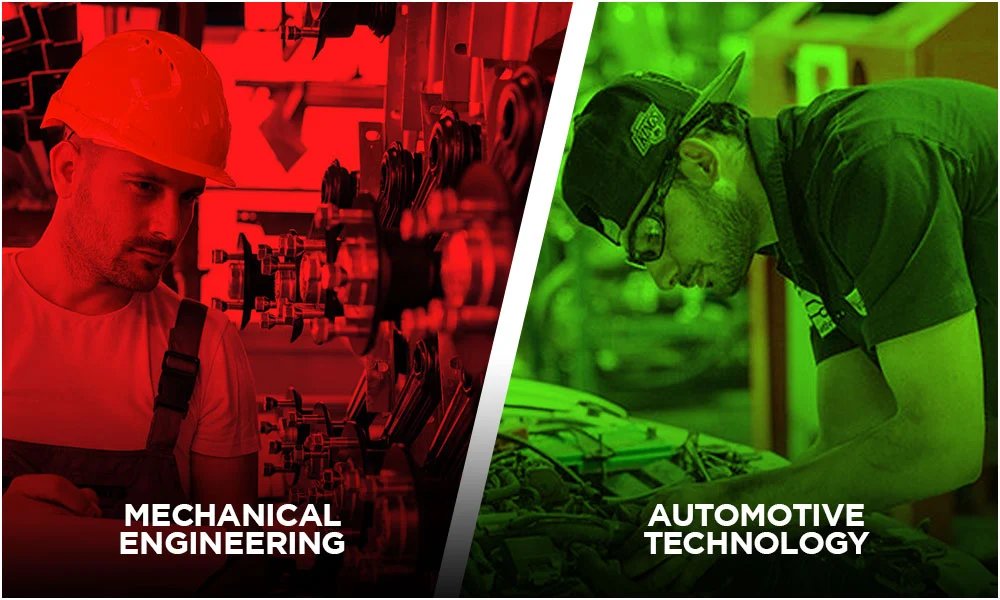How Do Mechanical Engineering and Automotive Technology Differ?

When it comes to working with cars, there are different jobs dealing with various car parts and responsibilities. Automotive engineering and automotive tech are some of the most common causes and job titles that people work towards.
According to Universal Technical Institute, “Learn by doing during your automotive mechanic training as you take on the maintenance and repair of both import and domestic vehicles.”
Difference between Automotive Engineering and Automotive Technology
Mechanical engineers and automotive technicians work on mechanical equipment and systems, but the main difference is the objective of their work. Automotive technicians work to ensure cars operate correctly, while mechanical engineers make the devices to solve any problems the vehicle has.
Mechanical engineers responsibilities
These professionals research, design, and help produce new cars, including the exterior and interior components. They focus on improving the performance and functionality of cars, developing new car technologies, testing prototypes, running computer simulations, and changing car designs based on the test and simulation results.
They also engage in cost control, quality assurance, project management, problem-solving, and report writing throughout the vehicles’ production cycle.
Mechanical engineers work for engineering firms, car manufacturers, or technology companies that deal with specific exterior or interior vehicle components or make entire cars from scratch. They work primarily in an office but periodically go to the vehicle components production sites.
Automotive technician responsibilities
Also known as mechanics or service technicians, these professionals work more with their hands to implement solutions or designs developed by mechanical engineers. They usually work most in auto repair shops to help fix and maintain clients’ cars. They can also work in automotive part stores, car dealerships, or car repair and maintenance companies.
They diagnose car issues using diagnostic tools and perform preventive and maintenance services like car parts replacement, oil changes, and extensive checks. While they might also rely on technology like mechanical engineers, their work is usually more hands-on, and they use many power tools. Successful automotive technicians need a proper understanding of cars’ systems and good problem-solving skills. They also need to be physically fit and have a lot of strength and good skills. Because of their hands-on working requirements, automotive technicians have higher risks of injuries while working than mechanical engineers.
Educational requirements
Automotive engineers must have bachelor’s degrees in automotive engineering or mechanical engineering. They also need to complete corporate education or an internship program, which allows them to apply all the knowledge they acquired in school.
On the other hand, automotive technicians can work with a shorter diploma, certificate, or associate’s degree program in automotive repair or services. They, however, get more hands-on training than mechanical engineers. Depending on where they work or their job responsibilities, they might also need a National Institute for Automotive Service Excellence certificate and a refrigerant handling certificate.
Job growth trend and salary
Automotive technicians and mechanical engineers have good job growth prospects. According to the BLS, mechanical engineers can experience a 9% job growth speed, while automotive technicians can experience a 6% job growth speed.
Salary for both occupations differs depending on the employee’s current knowledge and years of experience. An automotive technician with 0-5 years of experience can get an average of $30, while a mechanical engineer can earn $70,000.
For 20 years of experience, automotive technicians can get an average of $50,000, while mechanical engineers can earn $106,000.
Before choosing automotive tech or automotive engineering, the Universal Technical Institute advises students to consider the industry stability and chances of getting promotions after several working years.










